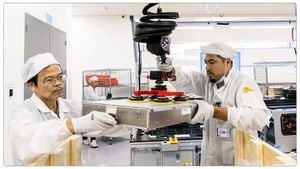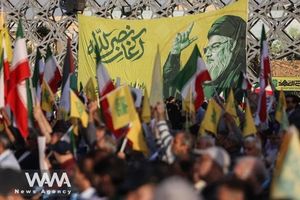Indonesian President Prabowo Subianto is gearing up for significant international engagements as he prepares for his first official foreign trip since taking office. Scheduled to attend the Asia-Pacific Economic Cooperation (APEC) Summit and the G20 Summit, Prabowo is set to make his mark on the global stage next month. The APEC summit will take place from November 13-16, 2024, in Peru, followed closely by the G20 summit on November 18-19, 2024, in Brazil.
During a recent briefing at the Presidential Palace in Jakarta, State Secretary Minister Prasetyo Hadi affirmed, "There are invitations to the G20 and APEC; as head of state, he must attend." This visit is made even more substantial as fourteen leaders from member countries have already confirmed their attendance at the APEC Leaders' Summit.
Among the attendees will be notable leaders such as Chinese President Xi Jinping and Canadian Prime Minister Justin Trudeau. The gathering is poised to attract around 5,000 delegates, including security personnel from various APEC member countries and approximately 2,000 international journalists poised to cover the event.
The significance of these summits extends beyond mere attendance. The APEC Leaders' Meeting will engage about 1,000 business people from across the Asia-Pacific, including representatives from giant tech companies like Google and TikTok. According to APEC Peru's senior official Renato Reyes, this forum aims to forge stronger economic ties amid rising geopolitical tensions.
Established back in 1989, APEC is composed of 21 economies surrounding the Pacific Rim, including nations such as Australia, Indonesia, Japan, and the United States. The alliance seeks to promote free trade and practical economic cooperation among its members, representing more than one-third of the world's population and maximizing 44% of global trade.
Meanwhile, the G20, which consists of 20 major world economies plus the European Union, has its focus set on global economic governance. Each summit has its distinct themes, and for 2024 under Brazil's presidency, discussions will revolve around "Building a Fair World and Sustainable Planet," highlighting the need for post-Covid-19 recovery strategies, alongside addressing global crises such as the repercussions of Russia's invasion of Ukraine.
Back home, observers note the importance of Prabowo's agenda as he aims to bolster Indonesia's position on the international front. His participation could also promote defense negotiations, especially following discussions around potential collaborations, such as the export of BrahMos missiles to Indonesia. India's advanced missile system, BrahMos, is seen as a significant asset, and Prabowo's engagement with Indian defense officials during the upcoming Republic Day parade might streamline this process.
Interestingly, this will mark the fourth time Indonesia will have its president serve as the chief guest at the Republic Day festivities, indicating the strengthening ties between the nations. With Indonesia ramping up defense spending, the partnership could pave the way for enhanced military capabilities, which Indonesia sees as necessary for maintaining regional stability.
Prabowo's recent engagements signal his priority of elevifying Indonesia's diplomatic prowess. His strategy includes not only participating actively in international forums but also consolidations with global powers on varied matters, including economics and defense.
The president has made it clear through his actions and engagements post-election, including meetings with various world leaders and stakeholders, showcasing Indonesia's commitment to contributing meaningfully to global dialogues. His vision reflects the need for increased economic partnerships and collaborative efforts to address broader geopolitical challenges.
Prabowo's trip to the APEC and G20 shows his readiness to lead on the international scene, but it also aims to showcase Indonesia's potential as a significant player among the G20 nations. With the world currently facing challenging economic landscapes and pressing social issues, Prabowo's role as Indonesia's leader becomes even more pivotal. It’s about building relationships, showcasing Indonesia's culture, and advocating for its economic interests.
One cannot understate the impact of these summits on Indonesia's promotion of itself as not just another developing nation but as one striving for leadership through cooperation and partnership. The president's trip could yield fruitful discussions leading to substantial agreements—especially considering the advances of the defense sector and opportunities for trade collaboration within APEC frameworks.
It is anticipated the outcomes from these engagements will have lasting effects on Indonesia's economy as well as its geopolitical strategies. The emphasis on security and economic stability will paint Prabowo’s administration as one committed to fostering innovation and investment, reinforcing the nation’s status as a regional leader.
This upcoming challenge paints a vivid picture of how Prabowo’s reign may shape Indonesia’s global outlook and its future contributions to international relations. Observers await developments from these significant summits as they hold much potential for Indonesia.



